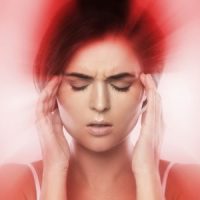Concussion After a Car Accident

When you are involved in a car accident, you may suffer various injuries, including a concussion. A concussion involves movement of the brain in the skull due to forceful impact, such as from a car crash.
Concussions occur when sudden movement or blunt force causes the brain to move. This damages neurons, causing damage to the brain and other parts of the body.
Concussions occur because even though the vehicle stops, your body continues in motion until it hits something, such as your dashboard, steering wheel, or windshield. Whether your head hits something or experiences sudden, intense movement, you can experience a concussion.
Concussions are often seen as mild injuries, but the effects can be serious enough to affect the entire body. A brain injury can affect your entire body and even change your behavior and mood. Therefore, if you have experienced one, it’s in your best interest to see a doctor right away.
Symptoms of a Concussion
A concussion can cause many symptoms, such as the following:
- Headache
- Nausea or vomiting
- Balance problems or dizziness
- Fatigue
- Blurred or double vision
- Sensitivity to light or noise
- Ringing in the ears
- Slurred speech
- Numbness or tingling
- Confusion
- Memory and concentration problems
- Irritability
- Nervousness or anxiety
- Drowsiness
- Changes in sleep patterns
It’s important to understand that these symptoms may be delayed. They may show up days or even weeks after the accident. You should see a doctor immediately following a crash to ensure there are no life-threatening injuries.
A brain injury will not heal without proper care. Neglecting a concussion can potentially lead to permanent damage to the brain. Studies also found that concussions increase a person’s risk of developing dementia or Parkinson’s disease later in life. They can also cause immense discomfort and cause other health problems to worsen.
Recovering From a Concussion
Recovering from a concussion can take some time. Here are some things you can do to speed up the process:
- Avoid physical activities that could exacerbate symptoms.
- Gradually return to activities. Start with light physical activities, such as walking and light stretching, and gradually increase the intensity as long as symptoms do not return or worsen.
- Ensure plenty of restful sleep at night and take naps during the day if needed. Proper sleep is crucial for brain recovery.
- Follow the proper diet. Stay well-hydrated and maintain a balanced diet to support overall health and recovery.
- Manage pain. Over-the-counter pain relievers like acetaminophen can help with headaches. Avoid NSAIDs like ibuprofen initially, as they can increase the risk of bleeding.
- Follow up. Schedule regular follow-ups with a healthcare provider to monitor recovery and manage any persistent symptoms. Consider seeing a specialist if symptoms persist beyond a few weeks.
Contact a Personal Injury Lawyer
Concussions can be complicated injuries. These head injuries can cause significant damage to not only the brain but the entire body.
In a crash? Make sure you get the medical attention you deserve. A Houston car accident concussion attorney from The West Law Office, PLLC can help you understand the next steps. We know that concussions can be scary situations. Schedule a consultation with our office today by filling out the online form or calling 281-347-3247.
Source:
metrohealthnyc.com/concussions-from-car-accidents-what-you-need-to-know/

